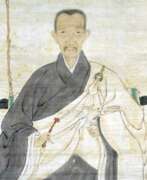Musicologists 17th century
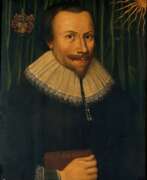

Robert Fludd was a prominent English Paracelsian physician with both scientific and occult interests. He is remembered as an astrologer, mathematician, cosmologist, Qabalist and Rosicrucian.
Fludd is best known for his compilations in occult philosophy. He had a celebrated exchange of views with Johannes Kepler concerning the scientific and hermetic approaches to knowledge.
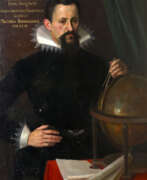

Johannes Kepler was a German mathematician and astronomer who discovered that the Earth and planets move around the Sun in elliptical orbits.
Kepler created the three fundamental laws of planetary motion. He also did seminal work in optics and geometry, calculated the most accurate astronomical tables, and made many inventions and discoveries in physics on which further scientific discoveries by advanced scientists were based.
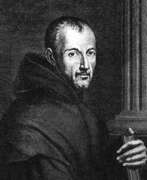

Marin Mersenne (also Marinus Mersennus or le Père Mersenne) was a French mathematician, physicist, philosopher and theologian, and music theorist.
Mersenne was educated at the Jesuit college of La Fleche and went on to study theology in Paris. He also became a member of the Order of the Minims and taught philosophy and theology at Nevers. He developed his ideas about the essence of the world and knowledge, insisting on the importance of experimentation and observation, and contrasted the rational natural world with human reason.
Beginning in 1635, Mersenne founded the Académie Parisienne, the forerunner of the French Academy of Sciences, where France's leading mathematicians and natural philosophers gathered. It provided a forum for the exchange of ideas among scientists and promoted the works of René Descartes and Galileo. The scientist's most famous achievement in mathematics was finding a formula for generating prime numbers, known today as Mersenne's Numbers. In 1644, Mersenne published his studies of Mersenne numbers and their relationship to prime numbers. His work in number theory and arithmetic proved pivotal to the development of mathematics in the seventeenth century.
He corresponded with many other scientists of the era, such as René Descartes, Blaise Pascal, and Pierre Fermat. However, his contributions extend much further, through his role in disseminating the work of the outstanding minds of his time. Mersenne traveled extensively throughout Europe, bringing new scientific ideas to France. He was an important mediator in the exchange of knowledge and contributed to the advancement of science in his era.
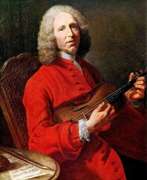

Jean-Philippe Rameau was a French late Baroque composer and music theorist.
Jean-Philippe's father worked as an organist all his life, so his son learned notes before he learned to read. He continued his musical education in Milan, playing the organ, violin and harpsichord. Rameau wrote works for the Paris theaters, composed sacred and secular music, and in 1745 became a court composer.
Rameau wrote many pieces for harpsichord, works for chorus and cantatas. Today he is recognized as the greatest French composer and the most prominent figure in the music of the 18th century.
